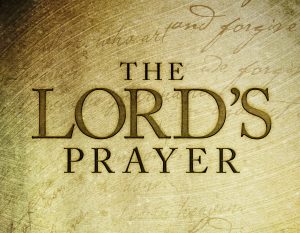
Pastor Rich Knight
Central Congregational Church
July 29, 2018
Matthew 6:1-18
We’re studying the Sermon on the Mount this Summer, the most important sermon in the history of our faith. We’ve said that it could very well be a collection of Jesus’ most important teachings. It certainly has played a central role in the history of Christianity. Let’s jump into chapter 6.
Matthew 6:1-18
“Beware of practicing your piety before others in order to be seen by them; for then you have no reward from your Father in heaven. “So whenever you give alms, do not sound a trumpet before you, as the hypocrites do in the synagogues and in the streets, so that they may be praised by others. Truly I tell you, they have received their reward. But when you give alms, do not let your left hand know what your right hand is doing, so that your alms may be done in secret; and your Father who sees in secret will reward you.
“And whenever you pray, do not be like the hypocrites; for they love to stand and pray in the synagogues and at the street corners, so that they may be seen by others. Truly I tell you, they have received their reward. But whenever you pray, go into your room and shut the door and pray to your Father who is in secret; and your Father who sees in secret will reward you. “When you are praying, do not heap up empty phrases as the Gentiles do; for they think that they will be heard because of their many stan smith nuud women black and blue jordan shoes - IetpShops - Adidas AdiFC Orlando Pirates words. Do not be like them, for your Father knows what you need before you ask him.
“Pray then in this way: Our Father in heaven, hallowed be your name. Your kingdom come. Your will be done, on earth as it is in heaven. Give us this day our daily bread. And forgive us our debts, as we also have forgiven our debtors. And do not bring us to the time of trial, but rescue us from the evil one. For if you forgive others their trespasses, your heavenly Father will also forgive you; but if you do not forgive others, neither will your Father forgive your trespasses.
“And whenever you fast, do not look dismal, like the hypocrites, for they disfigure their faces so as to show others that they are fasting. Truly I tell you, they have received their reward. But when you fast, put oil on your head and wash nike ja 1 scratch your face, so that your fasting may be seen not by others but by your Father who is in secret; and your Father who sees in secret will reward you.
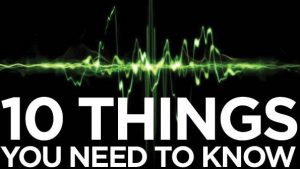
Here are 10 Things I think you should know about The Lord’s Prayer.
(I’ve never preached a 10-point sermon before. Hope you’re comfortable!)
- It’s found in Matthew Gospel & in Luke’s Gospel.
- And the settings are completely different, which is another indication that Jesus repeated his teachings on multiple occasions. He was a travelling, itinerant preacher, who travelled form town to town sharing the Good News.
This is one of the main reasons why I believe that the Gospels give us a reliable account of his teachings.He repeated his teachings multiple times in the presence of the disciples (“Oh, No, not the Prodigal Son story again, Lord! We’ve heard it every day this week!”).
Let’s take a look at the insert.
The Lord’s Prayer in Matthew 6
Pray then in this way:
Our Father in heaven, hallowed be your name.
10 Your kingdom come. Your will be done, on earth as it is in heaven.
11 Give us this day our daily bread.[c]
12 And forgive us our debts, as we also have forgiven our debtors.
13 And do not bring us to the time of trial,[d]
but rescue us from the evil one.[e]
Footnotes:
- Matthew 6:11Or our bread for tomorrow
- Matthew 6:13Or us into temptation
- Matthew 6:13Or from evil. Other ancient authorities add, in some form, For the kingdom and the power and the glory are yours forever. Amen.
The Lord’s Prayer in Luke 11
He was praying in a certain place, and after he had finished, one of his disciples said to him, “Lord, teach us to pray, as John taught his disciples.” He said to them, “When you pray, say:
Father,[a] hallowed be your name. Your kingdom come.[b]
3 Give us each day our daily bread.[c]
4 And forgive us our sins, for we ourselves forgive everyone indebted to us.
And do not bring us to the time of trial.”[d]
Footnotes:
- Luke 11:2Other ancient authorities read Our Father in heaven
- Luke 11:2A few ancient authorities read Your Holy Spirit come upon us and cleanse us. Other ancient authorities add Your will be done, on earth as in heaven
- Luke 11:3Or our bread for tomorrow
- Luke 11:4Or us into temptation. Other ancient authorities add but rescue us from the evil one (or from evil)
NOTE: Matthew 6 is in the middle of the Sermon on the Mount. Jesus is standing on top of a hill, with a large crowd below and in front of him. And he’s teaching them.
But look how different the setting is in Luke 11. Jesus is not preaching. He’s gone off by himself to pray. And when he returns his disciples ask him a question they’ve been wanting to ask him: “Lord, teach us to pray.” And so he gives them the Lord’s Prayer.
- Not only are the settings different, the introductions to the prayer are different, and they give us two ways to utilize the prayer!
Matthew’s version is introduced with these words: “Pray then in this way.”
Luke’s version is introduced with these words: “When you pray, say . . . .”
Do you see the difference Adidas Adilette Bonega W , adidas Jacket – HY7242 , Ida-stepShops?
In Matthew Jesus says, “Here’s a model for prayer, a framework to utilize in your prayer life.”
In Luke Jesus essentially says, “Boy, have I got a good prayer for you.”
So, the Lord’s Prayer is both an outline for prayer with suggested topics to pray about, and, it’s also a sample prayer for us to use verbatim.

- When it comes to “Debts” vs “Trespassers,” we’re right and the “Trespassers” are wrong!
Both Matthew & Luke use “debts”! And the two words can not be confused in the translations, because a debt is different from a trespass.
- A debt is about owing somebody something.
- A trespass is about going where you shouldn’t go
They are two different words in Greek & Aramaic. And debts is the one that is used in both versions of the Lord’s Prayer!
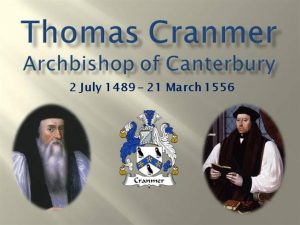
- So why do Roman Catholics, Episcopalians and others use “trespasses”?
The answer goes back to 1552. That was the year that the Anglican Church came out with a new edition of the “Book of Common Prayer,” one of the most beautiful books ever written. Much of it was written by Thomas Cranmer. But Cranmer made a mistake when he put it together. “Trespasses” is not found in either version of the Lord’s Prayer (Matthew’s or Luke’s) but it is used in the teaching that directly follows the Lord’s Prayer in Matthew’s Gospel.
Matthew 6:14-15 – For if you forgive others their trespasses, your heavenly Father will also forgive you; but if you do not forgive others, neither will your Father forgive your trespasses.
So, Thomas Cranmer used the word from Jesus’ commentary after the prayer, not the word Jesus used in the prayer!
I rest my case!
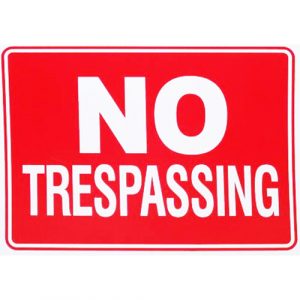
(Please forgive me for having a little fun with this. “Debts” and “trespasses” are simply two ways of expressing what our sins are. And by the way, I love the Anglican Book of Common Prayer! Like most Protestant clergy I know, I turn to it often as a beautiful resource for prayer and liturgy!)
- The First Word in the Prayer is very important. “Our”
“Our Father, who art in heaven.”
Why is that significant?
“Our” means that Jesus expected his followers to pray with others. He knew the power and the strengthening of faith that occurs when Christians pray with one another. “Our” implies that we’re supposed to pray regularly and often with others, like we do on Sunday mornings!
So, if you’ve ever felt like, “Boy, I feel so much closer to God when praying with others than when I’m just praying by myself.” Don’t feel bad. That’s what the first word of the Lord’s Prayer is all about!
- “Hallowed” means “Holy.”
It’s an expression of praise. It’s means, “God, you are awesome! You are wonderful! You are perfect!” It speaks to the purity of God’s goodness, the perfect consistency of God’s holiness. “Name” means character. Holy is your name. Holy is your character.
So literally it’s saying, “God, your character is perfect holiness & goodness!”
But again, it’s an expression of praise and adoration.
- The Lord’s Prayer contains the essentials of prayer.
(that of course shouldn’t surprise us since it comes from Christ himself!)
The Lord’s Prayer contains:
A. Praise – it begins & ends in praise!
B. Aligning my will with God’s will. “Thy Kingdom come” We’re giving ourselves to God & God’s purposes. “Lead us!” is the same thing – aligning our lives with God.
C. Asking for the things we need. For “Daily Bread.”
Sometimes folks ask, Is it okay to pray for a job? – a house? – car?
Yes! You need those things!
Is it okay to pray for a Lamborghini?
(No, we have to draw the line somewhere!)
D. Confession: “Forgive us our DEBTS!”
Those are the essentials of prayer, aren’t they?
Praise. Confession. Re-alignment. Daily Bread.
- Some parts of the prayer have interesting alternative readings.
Let’s look again at the insert.
The alternative readings are based on ancient manuscripts. The footnotes call them, “other ancient authorities.” These other ancient authorities are other manuscripts (copies) of Matthew & Luke. We don’t have the original manuscripts. We just have copies of copies. (the oldest New Testament manuscript we have dates to 125 AD, a small portion of the Gospel of John) Scholars believe that the oldest manuscripts are the most reliable, the most authoritative. But sometimes the other manuscripts provide some interesting alternatives. Take a look at the footnotes.
The Lord’s Prayer in Matthew 6
Pray then in this way:
Our Father in heaven, hallowed be your name.
10 Your kingdom come. Your will be done,
on earth as it is in heaven.
11 Give us this day our daily bread.[c]
12 And forgive us our debts, as we also have forgiven our debtors.
13 And do not bring us to the time of trial,[d]
but rescue us from the evil one.[e]
Footnotes:
- Matthew 6:11Or our bread for tomorrow
- Matthew 6:13Or us into temptation
- Matthew 6:13Or from evil. Other ancient authorities add, in some form, For the kingdom and the power and the glory are yours forever. Amen.
The Lord’s Prayer in Luke 11
He was praying in a certain place, and after he had finished, one of his disciples said to him, “Lord, teach us to pray, as John taught his disciples.” He said to them, “When you pray, say:
Father,[a] hallowed be your name. Your kingdom come.[b]
3 Give us each day our daily bread.[c]
4 And forgive us our sins, for we ourselves forgive everyone indebted to us.
And do not bring us to the time of trial.”[d]
Footnotes:
-
-
- Luke 11:2Other ancient authorities read Our Father in heaven
- Luke 11:2A few ancient authorities read Your Holy Spirit come upon us and cleanse us. Other ancient authorities add Your will be done, on earth as in heaven
- Luke 11:3Or our bread for tomorrow
- Luke 11:4Or us into temptation. Other ancient authorities add but rescue us from the evil one (or from evil)
-
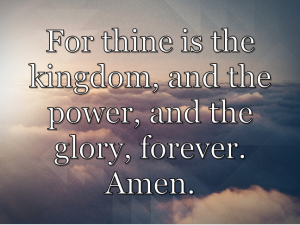
10.This explains why some churches don’t pray the ending of the prayer that we pray: “For Thine is the kingdom and the power and the glory forever.”
Those words are not in the earliest manuscripts. Again, scholars assume that the earliest manuscripts are the most accurate. This ending for the prayer, was however a common air jordan 4 mars blackmon 2024 ending for Jewish prayers at the time of Jesus. Just like we end prayers today, “In Jesus Name. Amen,” Jews in Jesus’ day often ended prayers, “Yours is the kingdom and the power and the glory forever.” So it is quite possible, even likely, that he did utilize this ending.
Well, that’s about all I know about the Lord’s Prayer!
I’ll leave you with this quick story:
Years ago I was visiting an elderly, homebound man in the congregation I was serving. He wasn’t a person to talk about his faith much, but we have a very pleasant visit. At the end I asked if I could pray before I went. He said, “Sure.” So I prayed a brief prayer and then I said, “Let’s close with the Lord’s Prayer.” We prayed it together, and when we finished he said: “That’s a good prayer. And it’ll get you through a lot if you use it.”
Amen!
